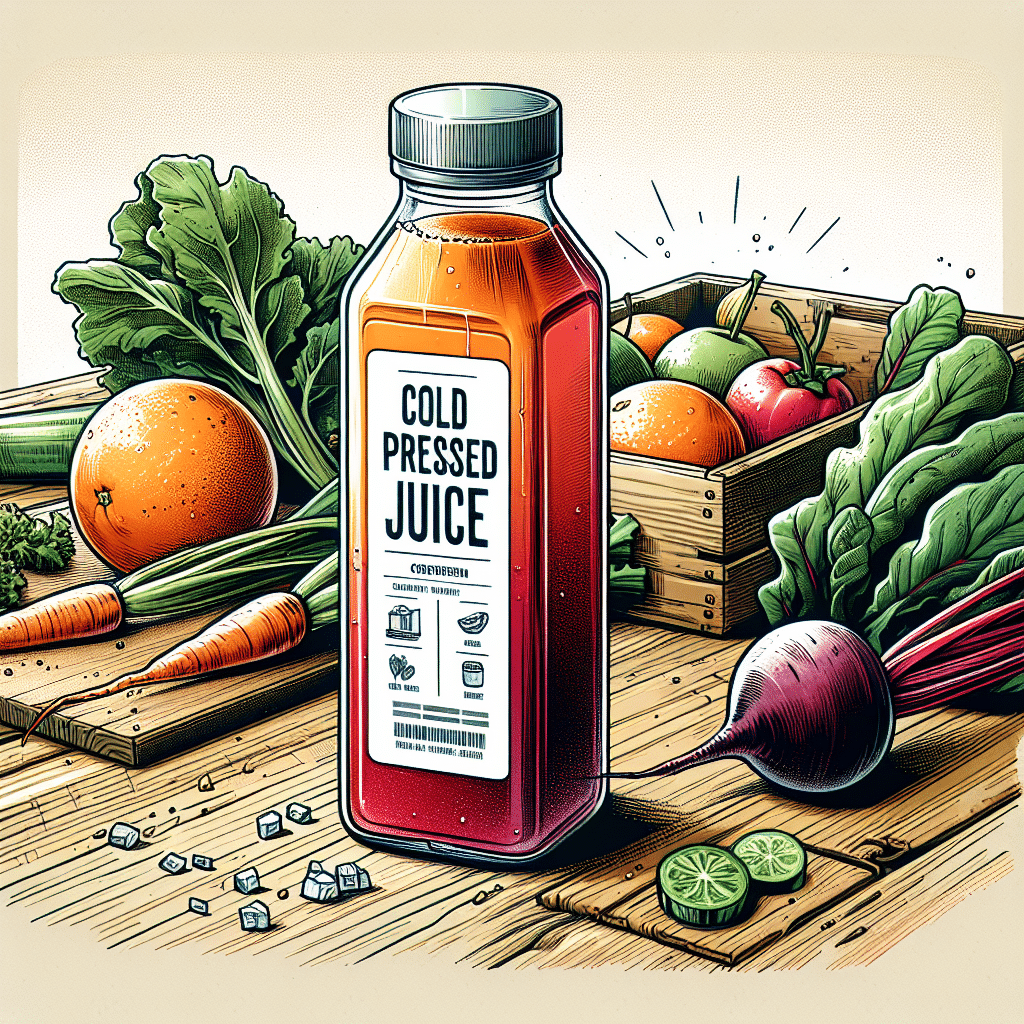Cold-pressed juice is a beverage extracted from fruits and vegetables using a hydraulic press that maintains low temperatures during the juicing process. This method is designed to preserve the nutrients, enzymes, and flavors of the ingredients, unlike traditional juicing, which often incorporates heat that can degrade these valuable components. Cold-pressed juices are celebrated for their vibrant colors, concentrated flavors, and nutritional value, often touted for their health benefits. They can contain a variety of ingredients, including leafy greens, citrus fruits, and roots, making them a versatile choice for those seeking a refreshing and nutritious drink. With a higher juice yield and minimal oxidation, cold-pressed juices offer an excellent way to enhance your diet and boost your health.
Understanding Cold Pressed Juice
Cold-pressed juice is not just a trendy beverage; it represents a significant shift in how we approach health and nutrition. Using a hydraulic press, this method applies immense pressure to fruits and vegetables, extracting juice while ensuring that the temperature remains low. This contrasts with traditional juicing methods, where centrifugal force generates heat, potentially destroying vital nutrients. A cold-pressed technique maximizes juice yield while minimizing oxidation, resulting in a product that retains more of the original fruits’ and vegetables’ essential vitamins, minerals, and enzymes.
How Cold Pressed Juice is Made
1. Sourcing Ingredients
The journey of cold-pressed juice begins with high-quality, fresh produce. Organic fruits and vegetables are favored due to their superior taste and nutritional profile. Popular choices include:
- Leafy greens (kale, spinach)
- Citrus fruits (lemons, oranges)
- Roots (beets, ginger)
- Other fruits (apples, pineapples, berries)
2. Washing and Preparation
Once sourced, ingredients are thoroughly washed to remove dirt and pesticide residues. Larger produce items may be chopped into smaller pieces to facilitate the juicing process, ensuring they fit into the press.
3. Cold Pressing
The hydraulic press applies pressure to extract juice, ensuring that the process remains cold. This extraction technique preserves the delicate nutrients that might otherwise be lost in heat-centric juicing methods. The result is a juice that is vibrant in color and rich in flavor.
4. Bottling and Preservation
After pressing, the juice is typically bottled immediately. It’s essential to bottle it in airtight containers to limit exposure to oxygen, which can lead to further oxidation. Some manufacturers opt for High Pressure Processing (HPP) to extend shelf life without compromising the juice’s nutritional value.
Benefits of Cold Pressed Juice
Cold-pressed juice offers several key benefits:
1. Nutritional Value
This method retains more vitamins, minerals, and enzymes than traditional juicing. For example, cold-pressed juices can contain higher levels of vitamin C and antioxidants, critical for overall health and wellness.
2. Digestive Health
The inclusion of fibrous ingredients can aid digestion, while live enzymes help your digestive system break down nutrients efficiently.
3. Weight Management
Cold-pressed juices can be a low-calorie addition to a balanced diet, providing nutrients without excessive calories. They may also help curb cravings when incorporated as part of a meal plan.
4. Antioxidant Boost
Fruits and vegetables are rich in antioxidants, which can help reduce oxidative stress and inflammation in the body, potentially lowering the risk of chronic diseases.
Popular Types of Cold Pressed Juice
Cold-pressed juices can be broadly categorized based on their main ingredients:
1. Green Juices
Primarily made from leafy greens, these juices often include spinach, kale, and cucumber, and may contain fruits like apples or citrus for sweetness.
2. Citrus Juices
Citrus juices offer a refreshing taste and abundant vitamin C, often blending oranges, grapefruits, or lemons.
3. Root Vegetable Juices
These juices frequently feature ingredients like carrots and beets, offering a naturally sweet flavor profile along with a range of health benefits.
Cold Pressed Juice vs. Traditional Juice
When comparing cold-pressed juice to traditional juice, there are distinct differences:
| Feature | Cold Pressed Juice | Traditional Juice |
|—————————-|————————————-|————————————-|
| Extraction Method | Hydraulic press | Centrifugal force |
| Heat Production | Minimal to none | Often generates heat |
| Nutrient Preservation | High | Lower due to oxidation |
| Shelf Life (without HPP) | Shorter due to lack of preservatives | Longer due to pasteurization |
The lower heat of cold-pressed juice helps maintain a better taste and nutritional profile, setting it apart in both flavor and health-consciousness.
Counterarguments and Considerations
While cold-pressed juice is often heralded for its benefits, some critics argue that:
- Cost: Cold-pressed juices tend to be more expensive than traditional juices due to the process and quality of ingredients used.
- Sugar Content: Some varieties may have high sugar content, especially fruit-based juices, which could be concerning for those monitoring calorie intake.
- Sustainability: The transportation and sourcing of fruits and vegetables for cold-pressed juices can raise sustainability questions.
It is essential to consider these factors when incorporating cold-pressed juice into your diet, ensuring it complements a balanced nutritional approach rather than substitutes whole fruits and vegetables.
Frequently Asked Questions (FAQs)
What is the shelf life of cold-pressed juice?
Cold-pressed juice typically has a shelf life of 3-5 days when refrigerated. However, juices produced with High Pressure Processing (HPP) can last up to several weeks.
Can cold-pressed juice replace meals?
While cold-pressed juice can be a nutritious addition to your diet, it should not entirely replace meals. It’s best used as a supplement to a balanced diet rich in whole foods.
Is cold-pressed juice healthier than smoothies?
Cold-pressed juices are concentrated sources of nutrients and lower in fiber, making them easily digestible. Smoothies retain fiber, which is beneficial for digestive health. Both options have their advantages depending on your health goals.
How can I make my cold-pressed juice last longer?
To extend the freshness of your cold-pressed juice, store it in an airtight container away from light and keep it refrigerated. Consuming it within a few days is ideal for optimal taste and nutrient retention.
Conclusion
Cold-pressed juice is more than just a beverage; it’s a health-conscious choice that allows you to harness the power of fruits and vegetables conveniently. Its superior nutrient profile, combined with vibrant flavors, makes it a favorite among health enthusiasts. Whether you’re looking to boost your nutrient intake, cleanse your system, or simply enjoy a refreshing drink, cold-pressed juice offers an ideal solution. Embrace the benefits of this juicing method and make it a healthy addition to your lifestyle.


